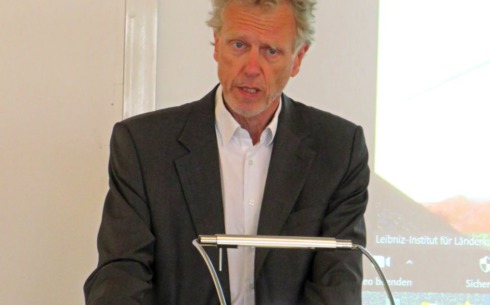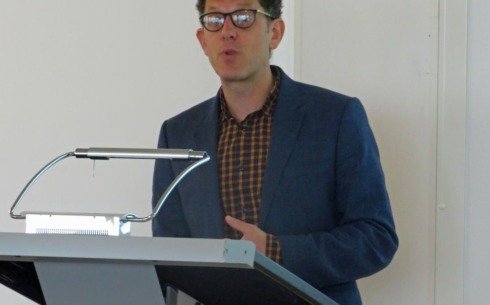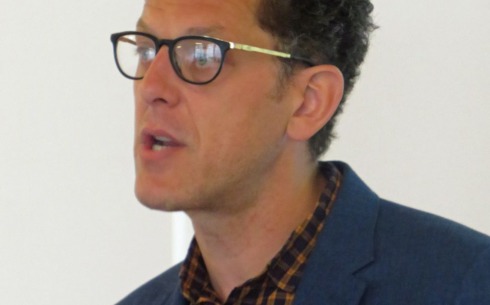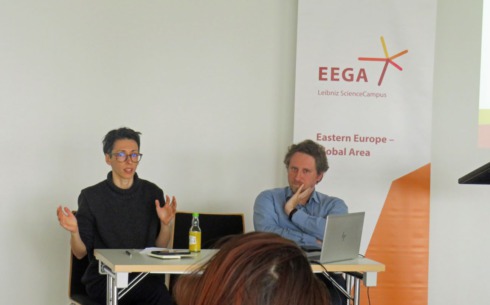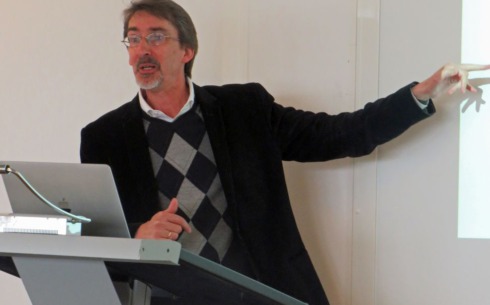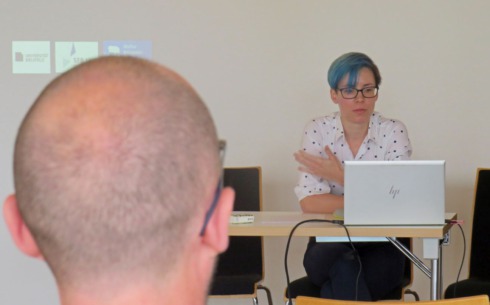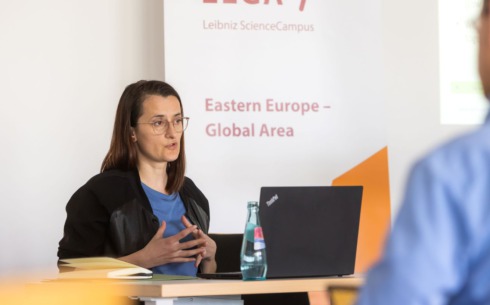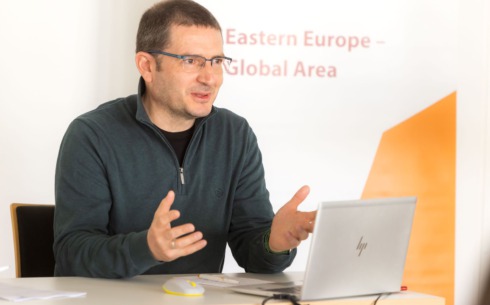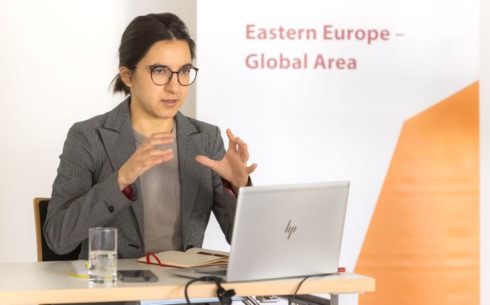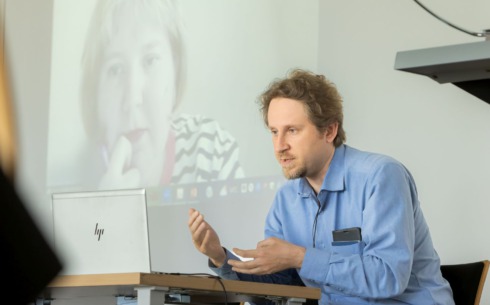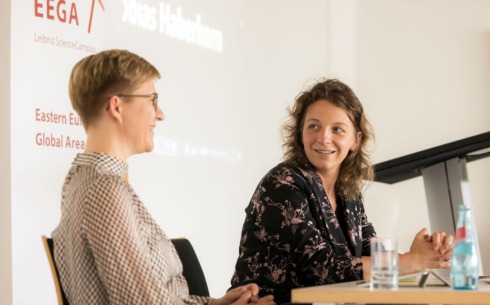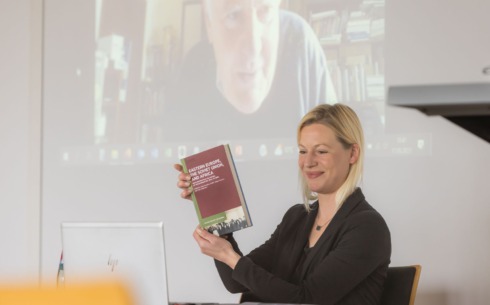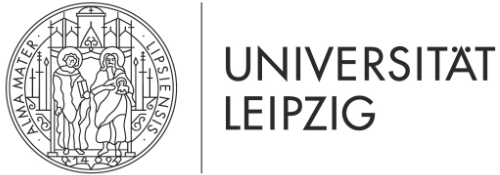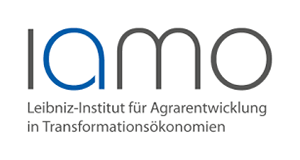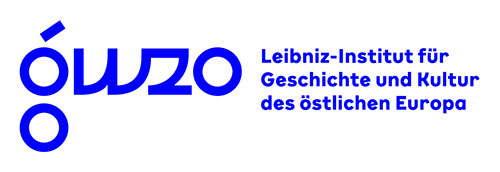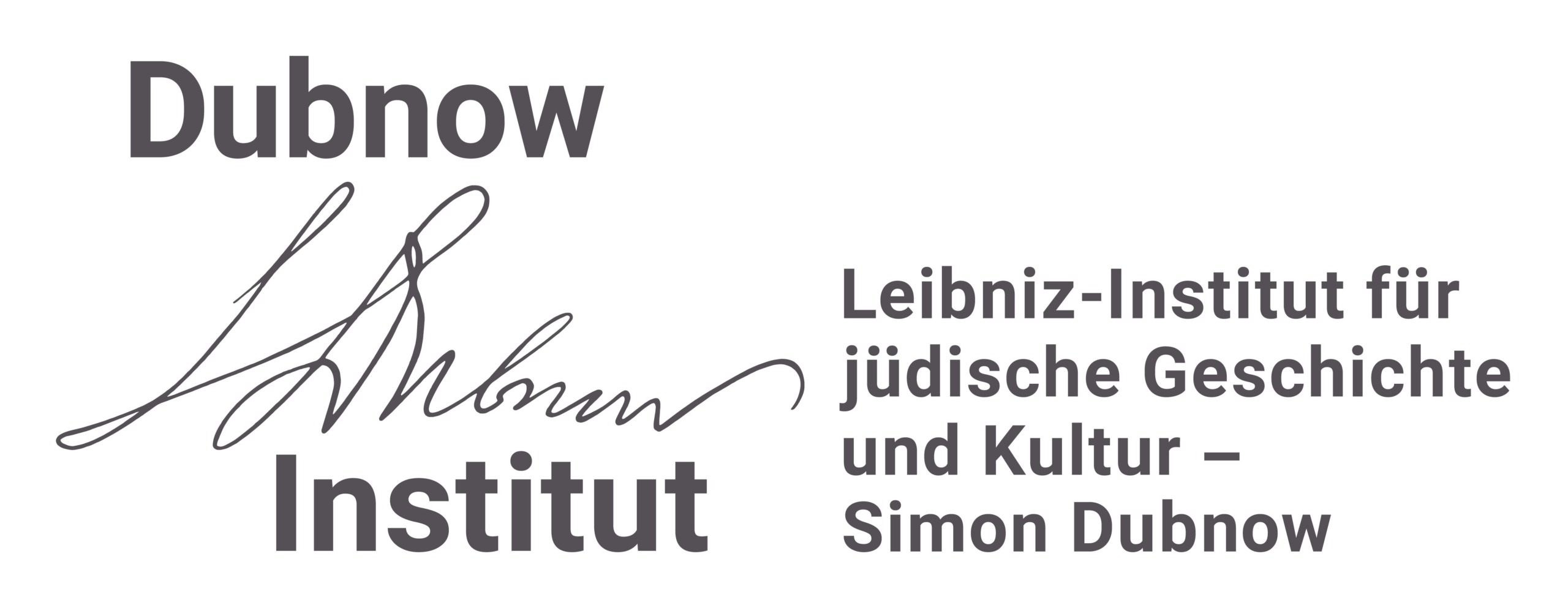EEGA Annual Conference 2023 – „Beyond the collapse: Globalization projects in Eastern Europe before and after 2022“
Against the backdrop of recent developments in the region, EEGA’s Annual Conference, 16- 17 May, 2023, asked „How do Eastern European actors respond to the new global challenges? How do they reconfigure their globalization projects?“. The in-person event took place in cooperation with EEGA’s main partner, the Research Centre Global Dynamics (ReCentGlobe) at Leipzig University, in Leipzig, city of EEGA’s headquarters.
At the two-day congress, scholars from all over the world presented their research on globalization projects in and from Eastern Europe in both panel sessions and round table discussions. Presentations featured perspectives from the fields of geography, history, sociology, anthropology, cultural studies, global and transregional studies, as well as neighboring disciplines.
The Keynote Lecture „The Second Cold War and the geopolitics of connectivity in (Eastern) Europe“ was held by Seth Schindler (University of Manchester) on “The Second Cold War and the geopolitics of connectivity in (Eastern) Europe”.
The conference addressed four themes:
1) Cultural imaginations, knowledge orders and their transformations in the wake of crises: How is “the global” imagined as well as the position of the region in it? How are transregional and intraregional (dis)connections represented, circulated and negotiated? How is knowledge about such connections produced, institutionalized, or applied?
2) Alliances, mobilities and global flows: Which partnerships and tensions do emerge between actors from the region and beyond? Which institutional arrangements are formed in the region to create infrastructures for such alliances? How are flows of goods and people organized, managed, controlled? How are mobilities enabled, enforced, controlled? How do societies react to mobilities of people and goods, including e.g. in the form of xenophobia and racism?
3) Resources and infrastructures: How are environmental and climate challenges addressed in the region? How are resources identified and framed to forge new globalization projects? How are the relevant infrastructures planned, implemented, used?
4) Crisis and reliance: How do societies in the region frame crises in military, economic, health, climatic aspects and how do they cope with it? Which effects can be observed for the reconfiguration of globalization projects in the region? How do ruptures in a global order relate to transformations in the region and vice versa?
See here the conference programme.
More detailed information about guests and topics are available in the conference report.
You can get some photographic impressions in our picture gallery:
